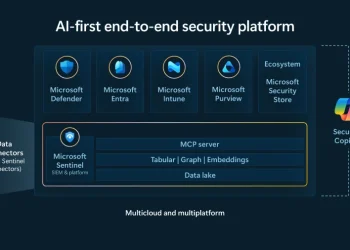Galaxy Unpacked 2025 delivered a bold vision for the future. Samsung unveiled its latest Galaxy Z foldables and health-focused wearables, combining artificial intelligence with wellness technologies. The event, held on July 9, emphasized Samsung’s goal to build a smarter, more connected ecosystem for its users.
To further explore this direction, Samsung organized the Galaxy Tech Forum on July 10 in Brooklyn. During two focused panels, experts from Samsung, Google, Qualcomm, Xealth, and Advocate Health discussed how AI and digital health are redefining mobile experiences. Together, they examined how deeper integration, stronger privacy, and collaborative innovation will shape future devices.
The first panel, The Next Vision of AI: Ambient Intelligence, explored how AI is evolving into something intuitive and unobtrusive. Jisun Park from Samsung shared that over 70% of Galaxy S25 users already use Galaxy AI features. Furthermore, Samsung aims to roll out Galaxy AI across 400 million devices by the end of 2025.
According to Park, the goal is not to replace smartphones but to make them smarter. He explained that ambient intelligence should anticipate needs based on user habits—without requiring prompts. A study with UK research firm Symmetry supported this, showing 60% of users prefer predictive device behavior.
In addition, Mindy Brooks from Google explained how Gemini, Google’s multimodal AI model, processes text, voice, and visuals to understand intent. This approach allows Gemini to deliver more personalized and helpful responses. Thanks to close collaboration, Gemini works seamlessly across Samsung devices and connects deeply with apps and services.
Meanwhile, Dr. Vinesh Sukumar of Qualcomm emphasized the importance of on-device intelligence. He noted that performance, privacy, and personalization are not separate goals—they must work together. He also stressed that users should know where their data resides and who controls it.
As the panel wrapped up, moderator Sabrina Ortiz from ZDNET led a discussion on trust and privacy. Panelists agreed that transparency, ethical AI, and user control are essential to delivering intelligent yet responsible mobile technology.
The second panel, The Next Chapter of Health: Scaling Prevention and Connected Care, focused on healthcare innovation. Dr. Hon Pak of Samsung opened by stating that health systems must evolve to understand people, not just patients. He argued that better tools can deliver more human-centered care.
Samsung’s acquisition of Xealth strengthens this vision. Xealth already works with 500+ hospitals and 70+ digital health providers. As a result, Samsung can now integrate data from its wearables—like smartwatches and rings—directly into clinical workflows.
Mike McSherry, CEO of Xealth, explained that smartphones and wearables will soon replace many standalone health devices. “Your phone, watch, and ring will work together as one packaged solution,” he said. This unified approach will simplify care and improve real-time monitoring.
Likewise, Dr. Rasu Shrestha of Advocate Health said collaboration is key. “No single player can fix healthcare alone,” he noted. That’s why he praised the partnership between Samsung, Xealth, and health providers as a way to build a smarter, more open ecosystem.
Samsung’s wearables use BioActive Sensors to collect detailed health metrics. When connected to SmartThings, these devices support remote care, making it easier for doctors and patients to interact in real time. In addition, AI reduces clinician workload by handling repetitive tasks and surfacing key insights when they matter most.
Ultimately, both panels shared a common message: realizing the potential of mobile AI and digital health requires cross-industry collaboration. Samsung’s innovations, showcased at Galaxy Unpacked 2025, are more than hardware upgrades—they are steps toward a secure, intelligent, and connected future.
READ: Samsung Foldables Leak Teases Fold 7 and Flip 7 Surprise














